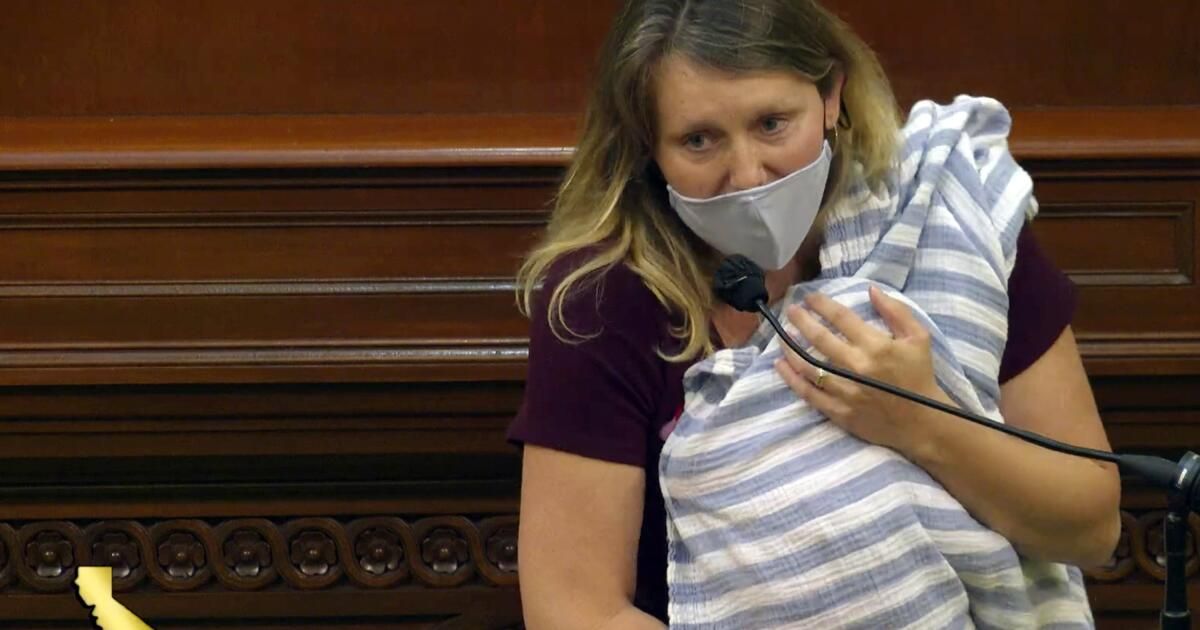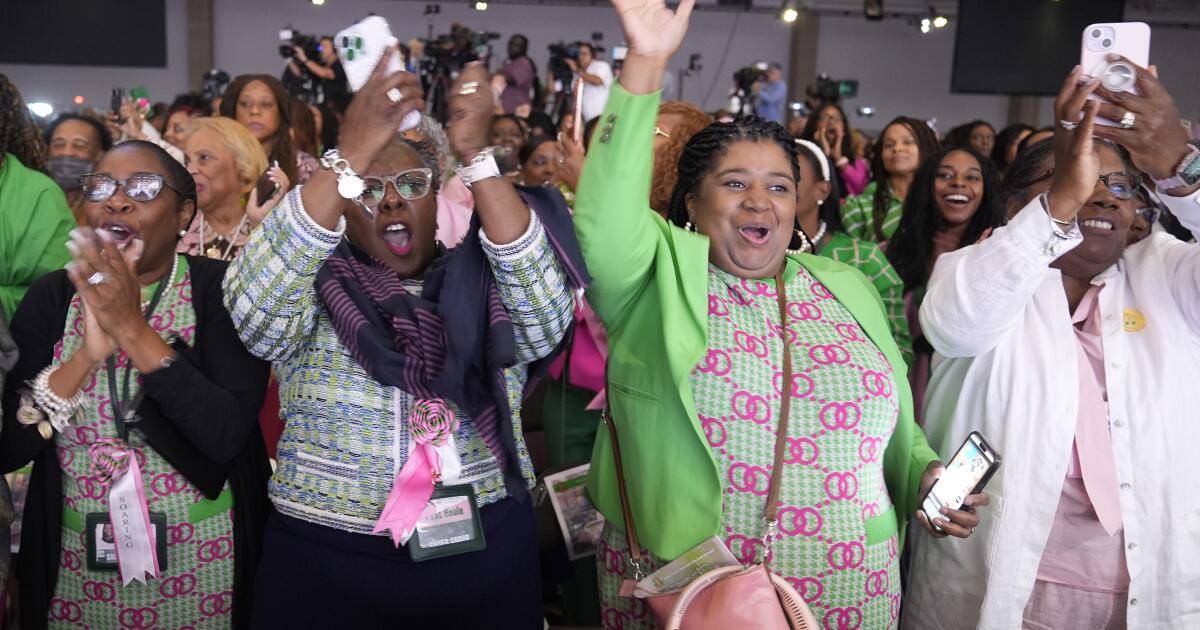The primaries are over and California has made a safe decision: for the first time in 30 years, the Golden State will not send a woman to the Senate.
Welcome to Women's History Month 2024, where even in California, progress feels like finding tampons in the public bathroom and then realizing they're the tubeless kind.
For those happily not following the election results, it appears that either Adam Schiff or Steve Garvey will join Alex Padilla as our representatives in the upper house of Congress.
No hate towards any of them. Obviously, gender should not be the determining factor when choosing who we vote for, despite what the “no balls to scratch” gentleman in a certain viral MSNBC video thinks.
But in an era of erosion of gender rights, this does give pause.
Especially when you add that leadership in the state Legislature has become all Y chromosome. A few weeks ago, former Senate President Pro Tem Toni Atkins (D-San Diego), who in 2018 became the first woman to hold that position , resigned due to term limits, handing it over to the very capable Mike McGuire (D-Healdsburg). That leaves McGuire and Assemblyman Robert Rivas in charge.
Atkins was the only woman (a rare woman, by the way) to hold the two highest positions in the Legislature. Her leadership was marked by bipartisan respect, a strength and wisdom that only a lesbian from the Appalachian mountains could muster in a place known for rivalries as intense as they were petty.
If you don't know Atkins' backstory, it's a lot like Dolly Parton's: a smart but poor girl in a cabin in the woods, with no running water, few prospects, and a lot of heart.
She has courage, as they say, and she doesn't accumulate it for herself. Atkins made sure other women were empowered, giving them leadership positions on key committees and helping them advance.
“Toni has taken more arrows in the chest than we will ever know,” newly elected Sen. Aisha Wahab (D-Hayward) told me, but “she is still willing to include you even if you are seen as the other.”
Now, of course, Atkins is running for governor, trying to become the first woman to hold that office in California (like Lt. Gov. Eleni Kounalakis and former Controller Betty Yee).
Which brings me to the real point of this column.
It is not the number of women in power. It's the quality.
Fortunately, California has quality, the kind of women who not only fight to win, but fight for change.
You won't find many Marjorie Taylor Greenes with their Jewish space lasers in the entire Golden State, at least in office.
In her place, you'll find Oakland Democrat Buffy Wicks, who in 2020 broke the boundaries of motherhood, four weeks after her C-section, by bringing her newborn daughter to the Assembly floor to vote when her colleagues refused. allow you to do it remotely.
“What am I going to do, leave her at home?” She joked recently when I asked her about that.
You will find Karen Bass, the first black mayor of Los Angeles, the first black woman to serve as speaker of any state legislature, not just California's.
And, Atkins told me, she was one of the first to approach her when she herself became a speaker and told her that she knew what it felt like to be the only woman in the room.
“We're still friends today,” Atkins said.
You'll find women like Wahab, the first Muslim and Afghan American elected to the state Senate. She grew up in foster care after losing her parents (her mother died when she was young and her father was murdered in a robbery).
Those early experiences left her acutely aware of the nexus between generational trauma and public policy, and the belief that “there is no point in wasting time, power, and privilege in fear.”
You'll find veterans like Nancy Skinner (D-Berkeley), who in her free time, dedicated to reforming the justice system and protecting children on social media, joined her colleagues to change what it meant to be a woman in the Legislature, because, as she says: “We have to catch up.”
About a decade ago, the few women at the top (there were fewer than two dozen at the time) decided they wanted to accelerate that recovery and set out to get more women elected, not just those from their own party or background.
So the women's group, of which Skinner was a formidable member, began not only recruiting other women to run, but also vetting candidates to make sure they could win. That didn't mean controlling a certain type, but simply making sure they were “viable,” Skinner told me.
Honey money.
The caucus began helping candidates with mentoring and support to raise money, even from skeptical donors who were still more comfortable with cigarettes than children.
Because before the vote there is the campaign, and if you can't pay for it, you can't win. And men didn't want to give women money because they didn't believe they could win, a circular logic that kept women on the sidelines.
“Whether conscious or not, there was this kind of prejudice that female candidates can't raise money,” Skinner said.
But women like Skinner and her group see viability differently than the establishment. That has led not only to more women in public office, but also to diverse women.
Fast forward 15 years and the effect of that intentional focus on the part of the women's group is clear.
There are currently a record number of women in the state Legislature, 50 of a total of 120 possible positions. That's about 42% women, in a state where half the population is female.
Organizations like Emily's List use the same approach to make sure female candidates have money, and across the country the near-equal rise of women continues.
Other states, however, have fared better than California. Nevada, believe it or not, is the only state that has had a female-majority legislature. Thirty-two states have elected female governors, sometimes more than once.
And almost everywhere it remains controversial to appear with a baby, or to be a woman with a wife, or in some places, even (as Missouri recently suggested) to show one's shoulders.
“It's great to see,” Atkins says of California's progress and women's progress in general.
But still, “the room doesn't always act like we belong there.”












